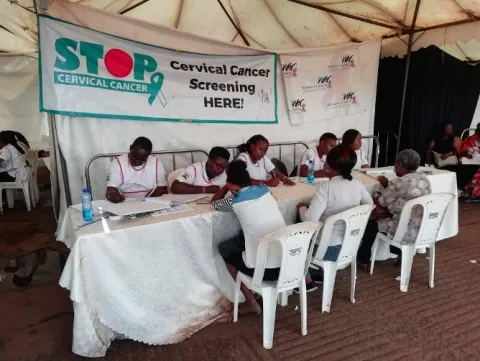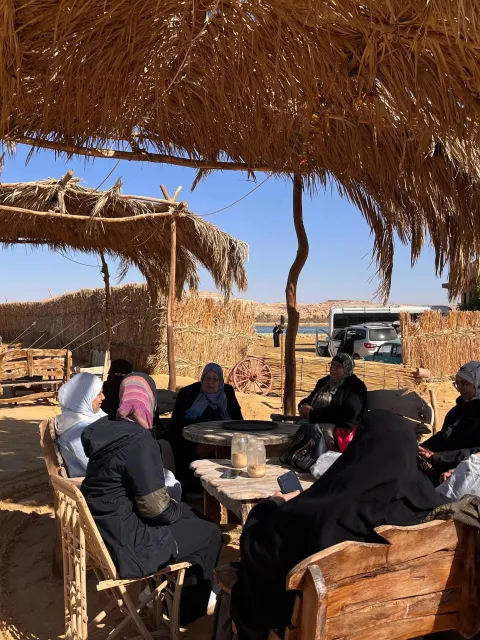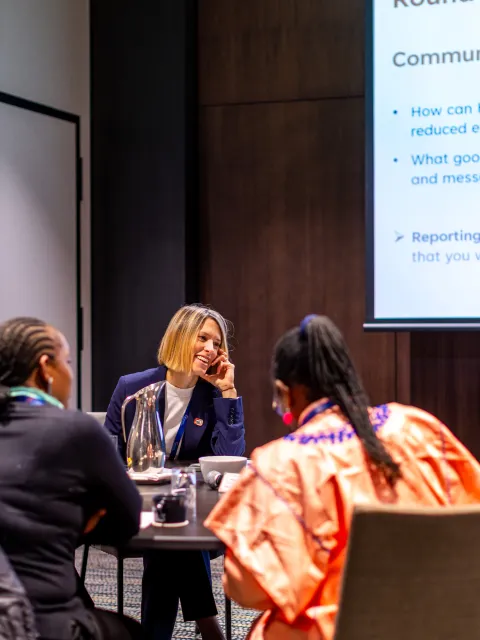Operation 1000 women: lessons learned from Kenya

As I searched for knowledge on how to improve cancer prevention in Cameroon, I could not have found a better time to get in contact with the Union for International Cancer Control (UICC). With the guidance of staff, I applied for a Technical Fellowship in 2019, proposing to visit UICC member organisation Women 4 Cancer Early Detection and Treatment based in Nairobi, Kenya for a project on cancer prevention and advocacy.
My aim was to gain further insight into robust ways to prevent cancer, as well as how to advocate for increased investment at national and local levels, and for the implementation of national policies to raise awareness about cancer risk factors. The driving force behind my visit to Kenya was to facilitate access to information, support and healthcare services for people in Cameroon to enable them to lead healthier lifestyles.
Benda Kithaka and her team at Women 4 Cancer left no stone unturned. I received the best knowledge and skills on cancer prevention and advocacy for greater sustainability of efforts in Cameroon, and took part in all of their activities scheduled for the month of January, which was International Cervical Health Awareness Month. I learnt a lot from this experience on advocacy policies and toolkits for cancer prevention; the importance of coalitions with organisations for capacity building; fundraising strategies; cervical cancer screening methods; tools used for screening and patient navigation procedures; partnerships with sponsor organisations and fun programmes to raise awareness on cancer prevention.
“The way to succeed at what you are doing is to face your fears and let your passion for the work impact lives and yield the success required.” Benda Kithaka, Chair, Women 4 Cancer
I translated the knowledge I acquired during the fellowship into action immediately upon my return from Kenya. I first convened the Board members of my organisation for training and knowledge sharing, then we laid out a five-year strategic work plan. We created a programme called ‘Operation 1000 women’ originally planned for May 2020, which aims at creating awareness about cervical and breast cancer prevention through screening. Our objective is to ensure that women know about the importance of early detection and screening. We aim to make this an annual campaign in collaboration with other organisations working on NCDs for better sustainability.
Despite socio-political instabilities and while we confront the huge challenges of COVID-19, work on cancer control must go on. The screening of large groups of women has been delayed due to the global pandemic, however we are nevertheless contacting women who have never been tested before through WhatsApp and encouraging them to go for testing individually. Our desire is that in the next five years, Humanity at Heart International becomes one of the best referral centers for cancer prevention and control in Cameroon. I believe in teamwork and we will work together with other cancer-fighting organisations to reduce the rates of cancer in Cameroon and the world at large.
Last update
Thursday 30 March 2023Share this page






